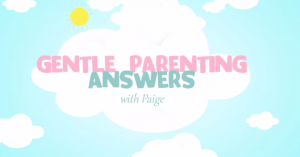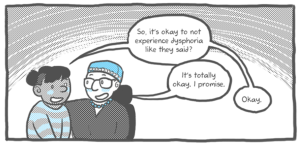(Content Warning: Sexual assault)
It’s two days before my Anthropology exam, and I can’t concentrate.
I was sexually assaulted the day before. I feel teary. I feel numb. I don’t know what to feel.
I’m torn between knowing that I need a break so that I can begin to recover from my assault, and feeling guilty for missing an exam.
My guilt stems from believing that my academics determine my worth. It also stems from my believing that my worth is defined by my productivity levels – a capitalistic lie that we’re all taught from a young age.
Because of these deep-set beliefs, a part of me feels as if missing exams means I’m weak, useless, and a failure.
I know I need to practice self-care. But practicing self-care at university – a place that equates our worth with our academic ability – is incredibly difficult.
Self-care is important for absolutely everybody.
But taking care of yourself while studying at university or college can be particularly tricky because of the unique pressures put on students.
For one, we’re often taught that our worth is tied to our academic performance, and that our marks define our value.
There’s also a pressure to dedicate a great deal of time, energy, and resources to your studies, which can be incredibly draining.
On top of all these issues, the institutional culture of most universities endorse racism, classism, cissexism, sexism, heterosexism, ableism, and other forms of oppression, leaving a great deal of marginalized students feeling isolated and disenfranchised.
This all makes university an incredibly difficult space to navigate. It’s all too common for students to experience burn-out, a low sense of self-worth, and deteriorating mental health because of the nature of university.
For this reason, self-preservation and self-care at university is key. We need to learn to take care of ourselves before we take care of our studies.
So here are a few tips on practicing self-care while studying.
1. Find Enjoyment in What You Study
It’s way easier to be happy at university when you’re actually—you know—studying what you enjoy.
So if you can study something you love, do that.
At the same time, there are so many of us who are studying things we don’t want to study. For example, sometimes we’re forced into fields we dislike by our families or those who pay for our tuition.
If you’re not lucky enough to be able to study what you love, the key to self-preservation is to find something you love in what you study. Sure, your entire course might not thrill you – but are there some aspects of it that you really enjoy?
Is there an interesting module, a good instructor, or the opportunity to research something interesting? When you get the chance to research on a topic of your choice, could you find an appealing approach?
If you really struggle to enjoy your studies at the moment, think about where it could get you in future. Will it get you to a career you enjoy? Could you eventually study further in a field that truly excites you? Will it lead you to meet fantastic people?
If you’re able to see any benefits and exciting opportunities in your field, hold onto that feeling of enjoyment, however small it may be. It can get you through the more difficult aspects of your course.
2. Find Out About Your College’s Student Support Services
Many learning institutions have counseling centers, mentorship programs, healthcare units, and support groups.
These are especially useful for those of us who can’t afford private therapy and medical care.
Find out about these services and how they work. Don’t be afraid to take advantage of these services when you need them. After all, they exist to support you!
3. Take a Break When You Need To
Taking a break is an obvious way to practice self-care. There are two important things to keep in mind when it comes to taking time off at university.
First, it’s important to be familiar with your university’s policy on taking leave.
As soon as you get to university, try to find out how someone can go about taking time off from university. Are you allowed to miss a few lectures? How many? How can you apply for an extension on deadlines? Is it possible to take a sabbatical? Will this affect your fees and funding?
Understanding a bit about these policies will prevent additional stress when you need to take a break.
Second, it’s important to recognize when you need a break. Stress affects everyone differently. Maybe it affects your sleeping patterns, maybe you feel physical pain, or maybe your immune system becomes weaker.
When you feel these symptoms coming on – and before you reach burnout – take a break.
Remember that you might not only need a break from university work. If you do other forms of work, you might need time off from that, too.
Remember, needing a break isn’t a sign of weakness, but taking a break can restore your strength and stamina.
4. Practice Effective Self-Care – Don’t Just Take Time Off
Like many people, I often make the mistake of thinking that everything that isn’t work is self-care.
Of course, taking a break from work can be important to self-care. But the two shouldn’t be equated.
Let me illustrate why:
As with many people with depression, I can’t get out of bed on some days. A while ago, I went through a few weeks where I was worse than usual. I was constantly sad and tired, and I kept having nightmares, which meant that I was unable to sleep properly.
I took a number of days off from university because I struggled to get to class. In that time, I mainly sat in bed, marinating in my own depressive thoughts.
Weeks passed, but I didn’t feel any better. I felt incredibly frustrated with myself.
My therapist asked me whether I had been practicing self-care and working towards recovery.
“Yes,” I said. “I’ve been taking time off.”
“Ah ha,” she responded. “But have you been practicing self-care? Have you been actively working towards getting better?”
It then occurred to me that the time I was taking off university wasn’t being used for effective self-care.
I took some time off because I simply had no other choice. In that moment, I had no energy to get up, let alone to work towards healing.
When I had energy, I didn’t spend it on recovery. I just spent it sleeping or doing distracting things.
I should have spent it thinking, writing, engaging with my negative thoughts, and actively trying to tackle my mental illnesses.
I realized that I was procrastinating. I was taking time off and avoiding confronting my trauma and calling it “self-care.” I didn’t want to practice self-care properly, because I knew that would involve me being tender towards myself – something I was struggling to do.
This ended up draining my energy and making me feel even more frustrated.
Let’s rethink self-care. Self-care shouldn’t only be about taking a break, but about actively working towards recovery and self-preservation.
Self-care should involve breaks, relaxation, and time off. It should involve doing things that distract you from anxiety and make you feel good about yourself.
But it should also involve actively engaging with your emotional state, whether it’s through therapy or activities like journaling, meditating, or deep introspection.
5. Nip Self-Care Guilt in the Bud
One of the trickiest things about self-care is feeling guilty for practicing it.
There’s this awful capitalist idea that our productivity determines our value. For this reason, we think that taking a break somehow makes us weaker, less valuable, and less important.
In the context of university, we might feel like it means we’re intellectually and emotionally inferior to our peers.
If you find yourself believing these things, remind yourself of two important facts:
First, practicing self-care is conducive to productivity. Preserving yourself and your energy prevents you from burning out in future. It’s simply not sustainable to study without taking care of your body, mind, and spirit.
If you’re not taking care of yourself, your academic performance is likely to be negatively affected. In this sense, self-care isn’t unproductive – it’s actually a necessary part of university life.
But secondly – and more importantly – we are more than our productivity.
The work we do – or don’t do – should not determine how valuable and important we are.
6. Find a Support System
This year has been incredibly difficult for me, and I wouldn’t have been able to get through it without the support of my loved ones. I can’t emphasize how important my support network has been to my self-care process.
A support system might consist of friends, family members, partners, a therapist or other health professionals, teachers, lecturers and instructors, colleagues, classmates, and other community members. You’ll want to connect with people who are empathetic, thoughtful, and open-minded.
At university, it’s particularly important to find supportive instructors and administrators. When it comes to applying for leave or asking for academic support, they’re your first port of call.
Learn to ask for help when you need it. If practicing self-care gets hard, or if you’re lonely, contact the people who support you – they’re there for you and they care about you.
7. Remind Yourself That You Are More Than Your Academics
I’ve met so many people at university who base their entire worth on their academics. And I understand them – because I do the exact same thing.
Because of this, I tend to feel incredibly depressed, anxious, and stressed when my marks aren’t as good as I want them to be.
If you feel similarly, ask yourself: What else are you good at? What else do you enjoy doing?
Make a list of all the things you do and enjoy that aren’t directly related to your academic life. Your academics are important, but there are other things in your life that are important, too.
Remember that you are valuable because you are a person. Your value isn’t attached to what you’re good at, but rather, to the fact that you’re a human being.
8. If You Need to Drop Out, Go Easy on Yourself
As I mentioned before, educational privilege is a thing.
As a society, we tend to overvalue education. We often think that we have to go to college in order to be smart, successful and happy.
But that’s not the case. People who go to college are certainly not better than those who don’t.
So, if you need to leave, leave. It doesn’t make you a failure. It doesn’t mean you are cowardly. It means that college was not the best thing for you at that point in time.
In fact, dropping out of college to take care of yourself – a scary move for most people – is an incredibly brave thing to do.
Maybe you’ll return to studying. Maybe you won’t.
Either way, you are still a valuable and important human being, and you deserve to take time to take care of yourself.
***
I decided to miss my exam, and the two remaining exams after that.
As I write this article, I’m studying for the make-up exams. Although I know for sure it’s what’s best for me, I still feel guilty.
I have nightmares about feeling like a failure because of missing my exams. Sometimes I wake up in a swea,t and I have to remind myself that it’s okay. “I forgive you,” I whisper to myself as I curl further under the blankets.
One day, I will accept the fact that there’s nothing to forgive. One day, I will stop apologizing for taking care of myself.
Self-care is, after all, a process.
[do_widget id=’text-101′]
Sian Ferguson is a Contributing Writer at Everyday Feminism and a queer, polyamorous, South African feminist who is currently studying towards a Bachelor of Arts majoring in English and Anthropology. Originally from Cape Town, she now studies at Rhodes University in Grahamstown, where she works as vice-chair of the Gender Action Project. She has been featured as a guest writer on websites such as Women24 and Foxy Box, while also writing for her personal blog. Follow her on Twitter @sianfergs. Read her articles here.
Search our 3000+ articles!
Read our articles about:
Our online racial justice training
Used by hundreds of universities, non-profits, and businesses.
Click to learn more





















